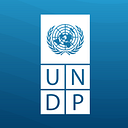Business Associations: Small Going Big
Small businesses, often unable to lobby effectively on their own behalf, can turn into ‘heavyweight’ players when represented by their business association.
Since 2015, UNDP Ukraine, with the support of the Swiss Government, has run a three-year initiative to support the organizational development of business associations, self-governing organizations of small and medium-sized enterprises (SMEs) started and run by entrepreneurs
We are summing up here the key insights from this initiative. But facts first:
Only 9 per cent of entrepreneurs belong to a business association, according to the 2017 UNDP survey on business services. At the same time, 40 per cent of the surveyed business owners are interested in joining a business association or creating their own.
What’s the point for SMEs in joining an association?
The advantages are many.
To start with, an association could be much more efficient when it comes to advocating for the rights of small businesses and entering the negotiation process with government entities and large enterprises. The “weight” of an association makes it a equal partner in a dialogue where a voice of a small business owner could go unnoticed.
Secondly, it opens up an opportunity to receive the much needed expert information at the right time. For instance, if there is a bill coming up that raises certain concern among businesses, an association can submit some well-founded recommendations that reflect the real needs of small businesses.
Thirdly, associations support entrepreneurs in their professional growth by providing them with consulting services and other assistance with business development. For instance, during the UNDP project implementation, 35 new business association services have been added to the list, and 17 existing services have been improved. Besides, the number of entrepreneurs interested in such services increased by 65 per cent.
And, finally, associations make for higher quality standards in business, and what’s crucial here is that the trend is driven by business as it strives to win reputation and customer’s trust.
This practice also comes in handy in counteracting unfair competition and corruption practices, facilitating access to foreign markets through harmonization with international standards, and contributing to greener production practices.
One of the impediments in the way to business associations development in Ukraine was the fact that until recently there was no comprehensive study program focused on capacity building of business associations.
That is why UNDP struck a partnership with one of the top business schools in Ukraine, Kyiv-Mohyla Business School (kmbs).
To support seven partner business associations, representing the interests of over 3,250 small and medium-sized businesses from all over Ukraine, a special nine-month course was developed. The chances are high that the course will be run on a permanent basis.
Some leading Ukrainian experts, business school lecturers and successful business owners contributed to developing a range of training materials and practical tools for specific topics, including fundraising, advocacy, data processing, marketing and communications, HR, and financial resources management.
These materials are available on the platform of Business Association Academy.
Spurring local business: Vinnytsia case study
Vinnytsia experience could give a useful replication model for other Ukrainian cities seeking to simplify doing business and foster its development. For the local businesses to flourish, they need a favourable business climate and favourable regulatory environment in particular.
To remove regulatory obstacles for small business, Vinnytsia, with UNDP’s expert support, has introduced an online tool — the Open Regulatory Platform — that allows to do a systematic review of municipal decisions that have implications for business.
Openness means that decisions are reviewed jointly by all concerned — city authorities, business associations, higher education institutions and civil society organizations. As a result, in 2018 the Vinnytsia city council has cancelled 10 outdated regulations.
Self-regulation drive
As an added value, business associations could come up with the initiatives focused on improving the quality standards.
For instance, one of the high impact examples is an advocacy campaign launched by the League of Business and Professional Women, with a goal to improve the standards of doing business in beauty salons, as well as in the hospitality industry and preschool education institutions.
The key to this the campaign was that this commitment was taken on voluntarily. “A responsible business can independently influence the market, shape consumer culture, and take care of the clients,” as campaign organisers have put it.
Such an approach turns out to be a win-win for all concerned: business boosts the reputation and achieve marketing gains, customer safety is improved, so, at the end of the day, these improvements make a real impact on public health.
Strengthening small and medium enterprises business membership organizations project was implemented by UNDP Ukraine with the funding from the State Secretariat for Economic Affairs of Switzerland (SECO), and in cooperation with the Ministry of Economic Development and Trade of Ukraine.
Text: Tanya Kononenko | Read in Ukrainian
